“You’re not from around here, are you?”
|
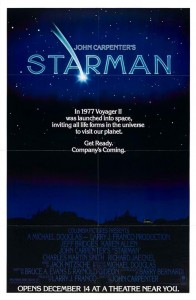
Synopsis:
Responding to an “invitation” by the Voyager II to visit Earth, an alien named Starman (Jeff Bridges) descends and embodies the dead husband of a grieving widow (Karen Allen). Starman enlists Allen’s help in driving towards the spaceship which will take him home, and they find themselves falling in love.
|
|
Genres, Themes, Actors, and Directors:
- Aliens
- Jeff Bridges Films
- John Carpenter Films
- Karen Allen Films
- Richard Jaeckel Films
- Road Trip
- Romance
- Science Fiction
- Widows and Widowers
Response to Peary’s Review:
As noted by Peary, John Carpenter’s sci-fi fairy tale — an adult E.T. — possesses “sympathetic characters” and many “sweet scenes”, but suffers from both a “familiar and predictable” storyline, and an illogical, unwarranted conclusion. When Starman notes that “earth men are at their best when things are at their worst”, we wonder how he came to this conclusion, and why it’s presented as the film’s primary theme when it has nothing to do with what’s come before. Jeff Bridges was nominated for an Academy Award for his performance as Starman, but it’s Karen Allen who’s most impressive here — as Peary notes, she shows “that she is more comfortable than any other contemporary actress at playing love scenes”. Recommended for one-time viewing, but ultimately not must-see.
Redeeming Qualities and Moments:
- Karen Allen as Jenny
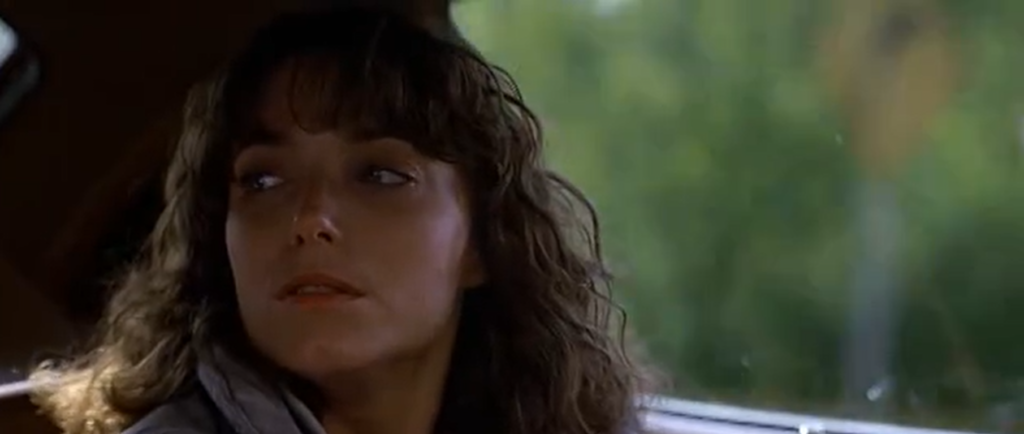
- Jeff Bridges as the Starman
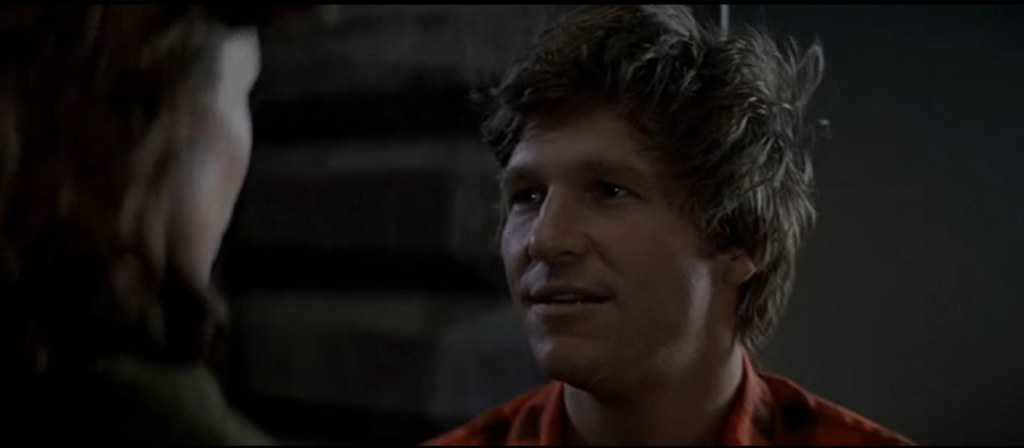
- Nifty special effects as Starman emerges and ages in a human body
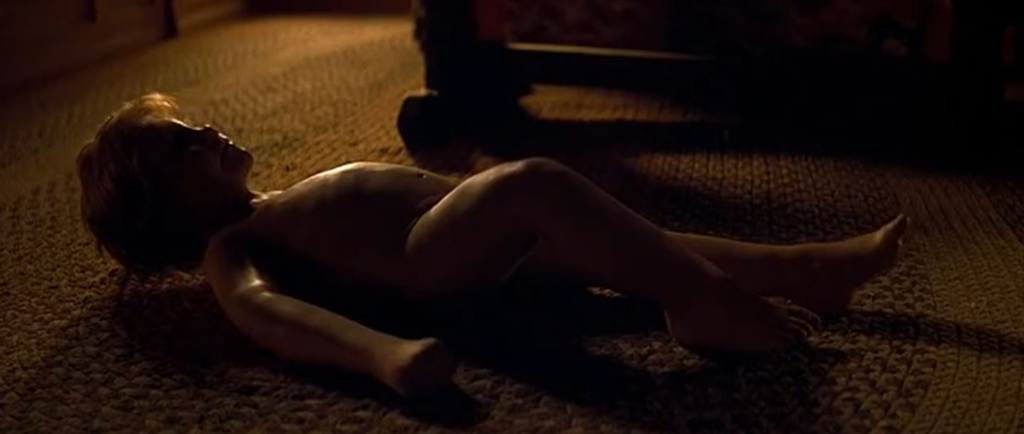
- Starman healing a dead deer
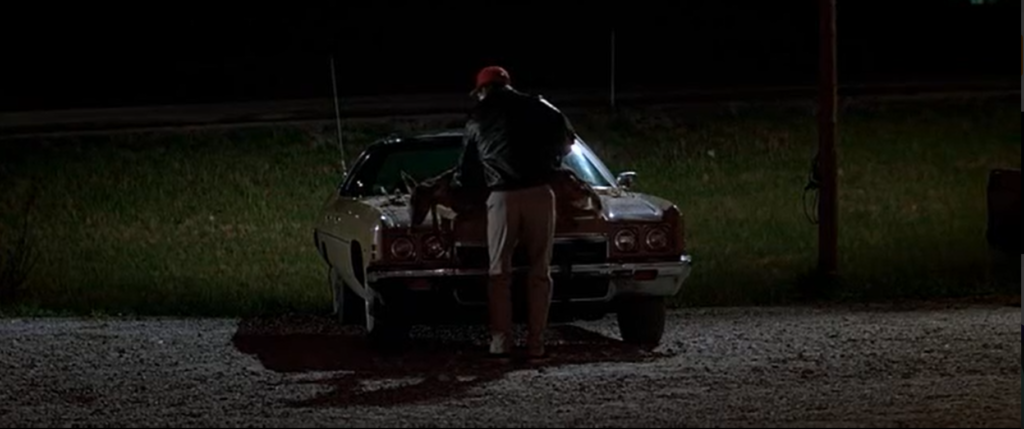
- The sweetly evolving romance between Jenny and Starman
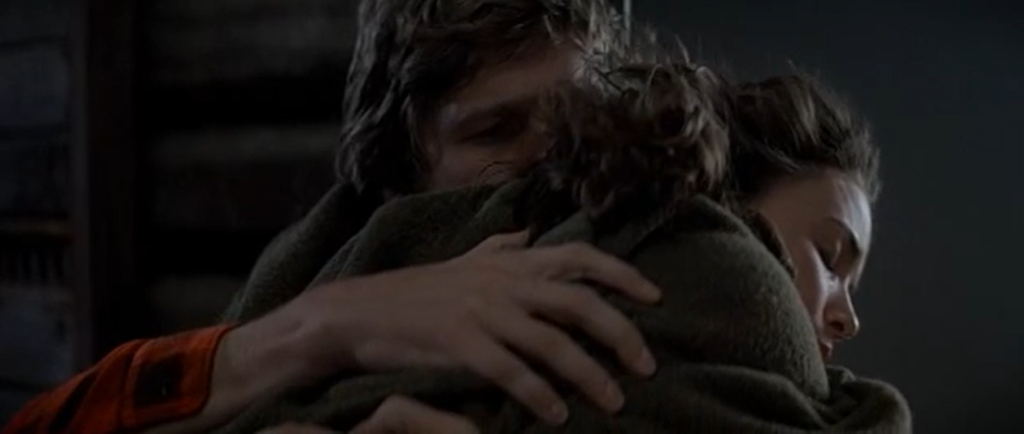
Must See?
No, but it’s recommended for one-time viewing.
Links:
|
One thought on “Starman (1984)”
First viewing. A once-must, mainly for the reasons pointed out in the ‘redeeming qualities and moments’ (reviving the deer – and Jenny – are pivotal moments). I don’t think the Starman’s remark (“earth men are at their best when things are at their worst”) is meant to be the film’s theme. But I think it’s intended to reflect the philosophy of his kind – he comes from a place where people are always only at their best and never at their worst. I think the film’s theme is the celebration of life at its best.
As per my post in ‘Revival House of Camp & Cult’ (fb):
“Define ‘shit’.”
‘Starman’: Wikipedia tells us (in detail) that this flick, in a number of years in studio development, went through a whole bunch of writers and directors before the directing job fell to John Carpenter (who was anxious for a break from horror). The premise: A government-research department seeking knowledge of extraterrestrial life sends an invitation into space. It’s answered and a representative ‘force’ is sent to make closer contact – but our war department shoots down its entry ship. (It’s in this governmental schism that we get a side-lesson in the difference between [D]s and [R]s.) Fleeing from its destroyed ship, the ‘force’ finds quick shelter in the home of a childless widow (Karen Allen), using film and photos to assume the body of the widow’s husband (Jeff Bridges). Why the ‘force’ actually needs the human body is irrelevant (it’s silly to hold a film like this accountable, even when it trips on its own logic) – esp. when the film is shaping itself into a love story. As such, ‘Starman’ is at its best when it’s reaching its conclusion and the bond has been fully formed. (It’s easy to see why Allen would want to go back ‘home’ with Bridges when he describes where he came from: “There is only one language, one law, one people. There is no war, no hunger. The strong do not victimize the helpless.”) I would have preferred a somewhat-tighter pacing and a little more lilt in the humor (but, after all, Allen’s Jenny is in mourning) but the appealing performances by the leads make things smooth. The studio feared the film’s similarity to ‘E.T’ – which it knew was coming out prior… and did prove to be the more substantial hit. ~though I think ‘Starman’ is the better movie.